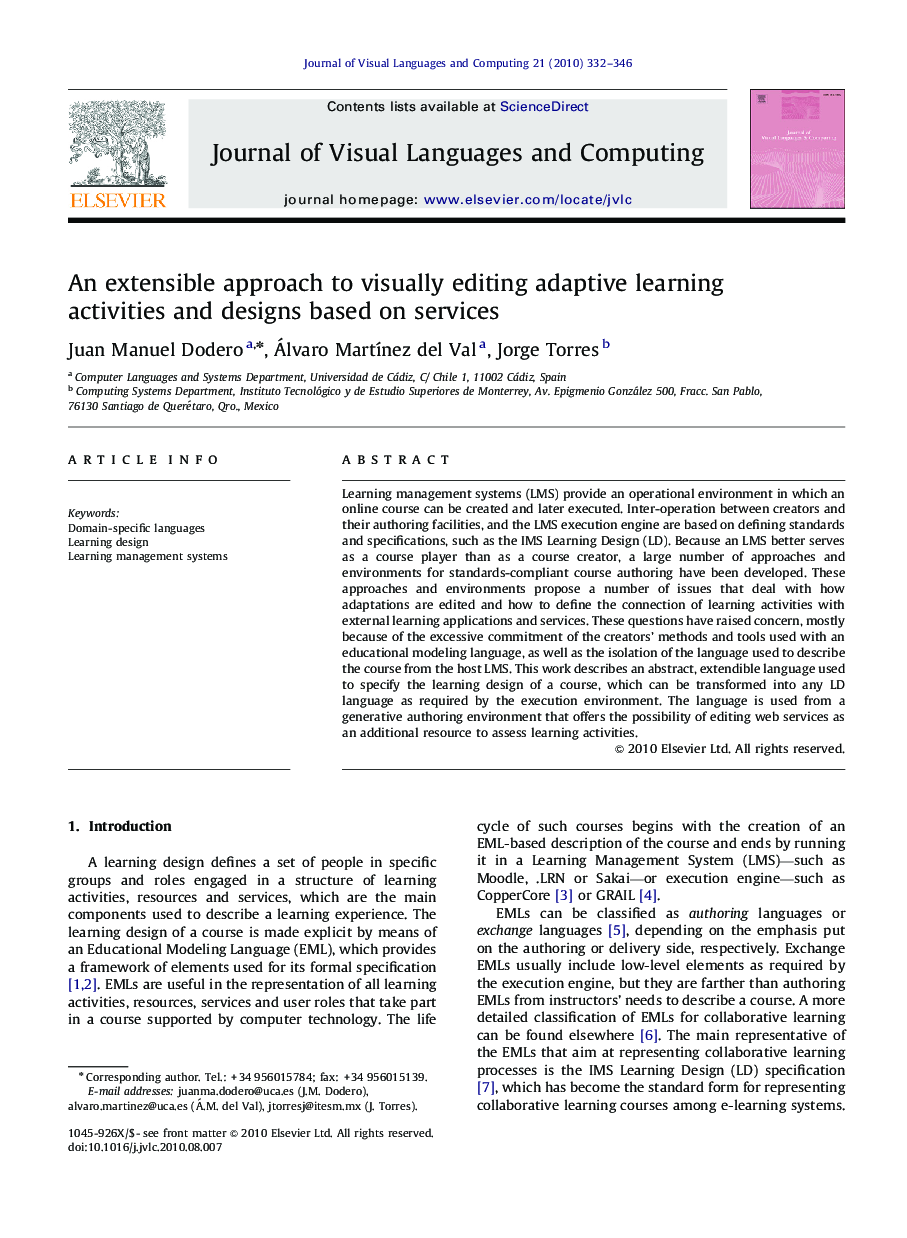| Article ID | Journal | Published Year | Pages | File Type |
|---|---|---|---|---|
| 524462 | Journal of Visual Languages & Computing | 2010 | 15 Pages |
Learning management systems (LMS) provide an operational environment in which an online course can be created and later executed. Inter-operation between creators and their authoring facilities, and the LMS execution engine are based on defining standards and specifications, such as the IMS Learning Design (LD). Because an LMS better serves as a course player than as a course creator, a large number of approaches and environments for standards-compliant course authoring have been developed. These approaches and environments propose a number of issues that deal with how adaptations are edited and how to define the connection of learning activities with external learning applications and services. These questions have raised concern, mostly because of the excessive commitment of the creators’ methods and tools used with an educational modeling language, as well as the isolation of the language used to describe the course from the host LMS. This work describes an abstract, extendible language used to specify the learning design of a course, which can be transformed into any LD language as required by the execution environment. The language is used from a generative authoring environment that offers the possibility of editing web services as an additional resource to assess learning activities.
Graphical AbstractFigure optionsDownload full-size imageDownload as PowerPoint slideResearch Highlights► Domain-Specific Language used to editing Learning Designs. ► Generative authoring environment used to edit learning activities and services. ► Assessment service integrated in the authoring environment.
